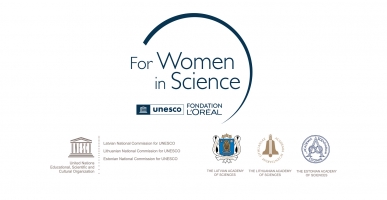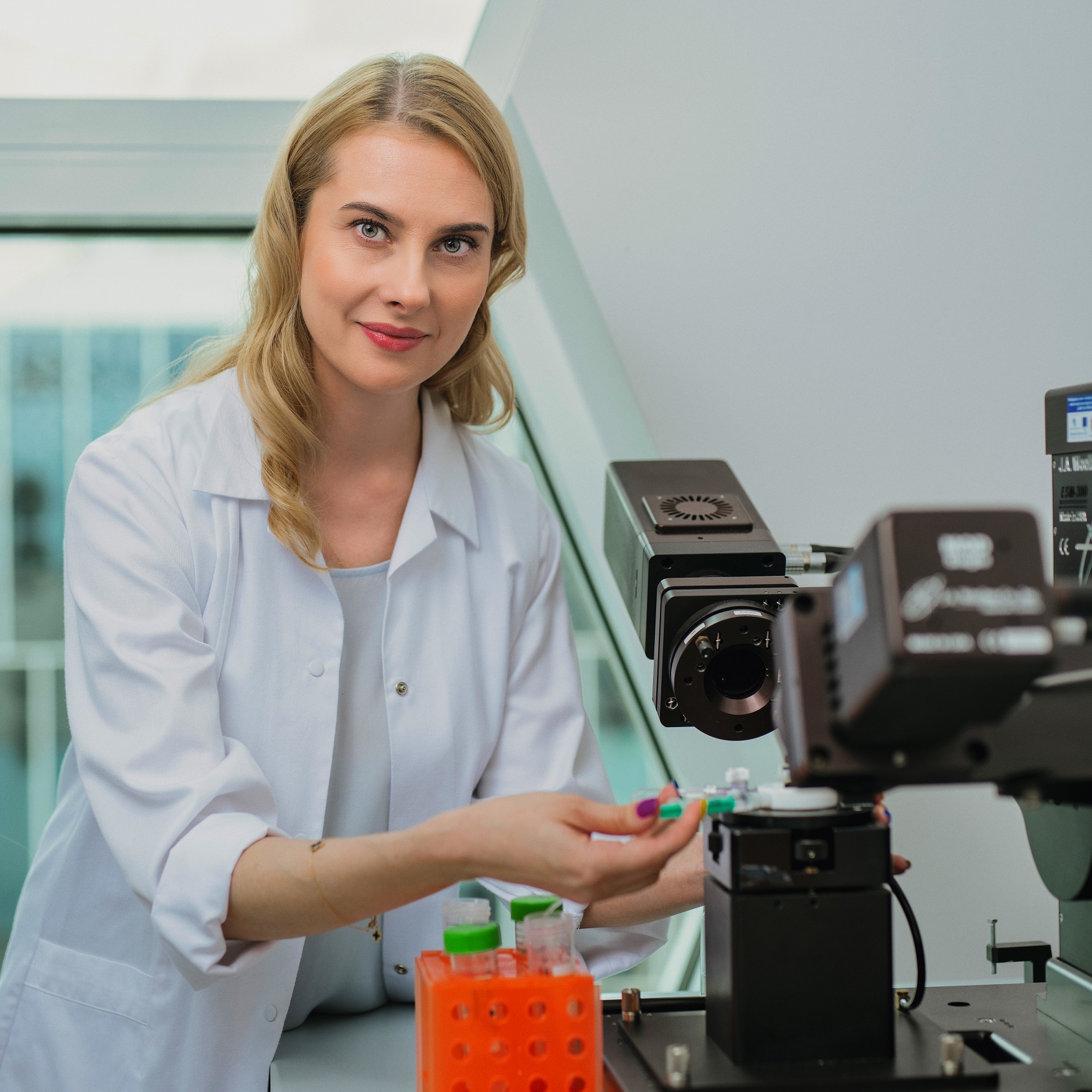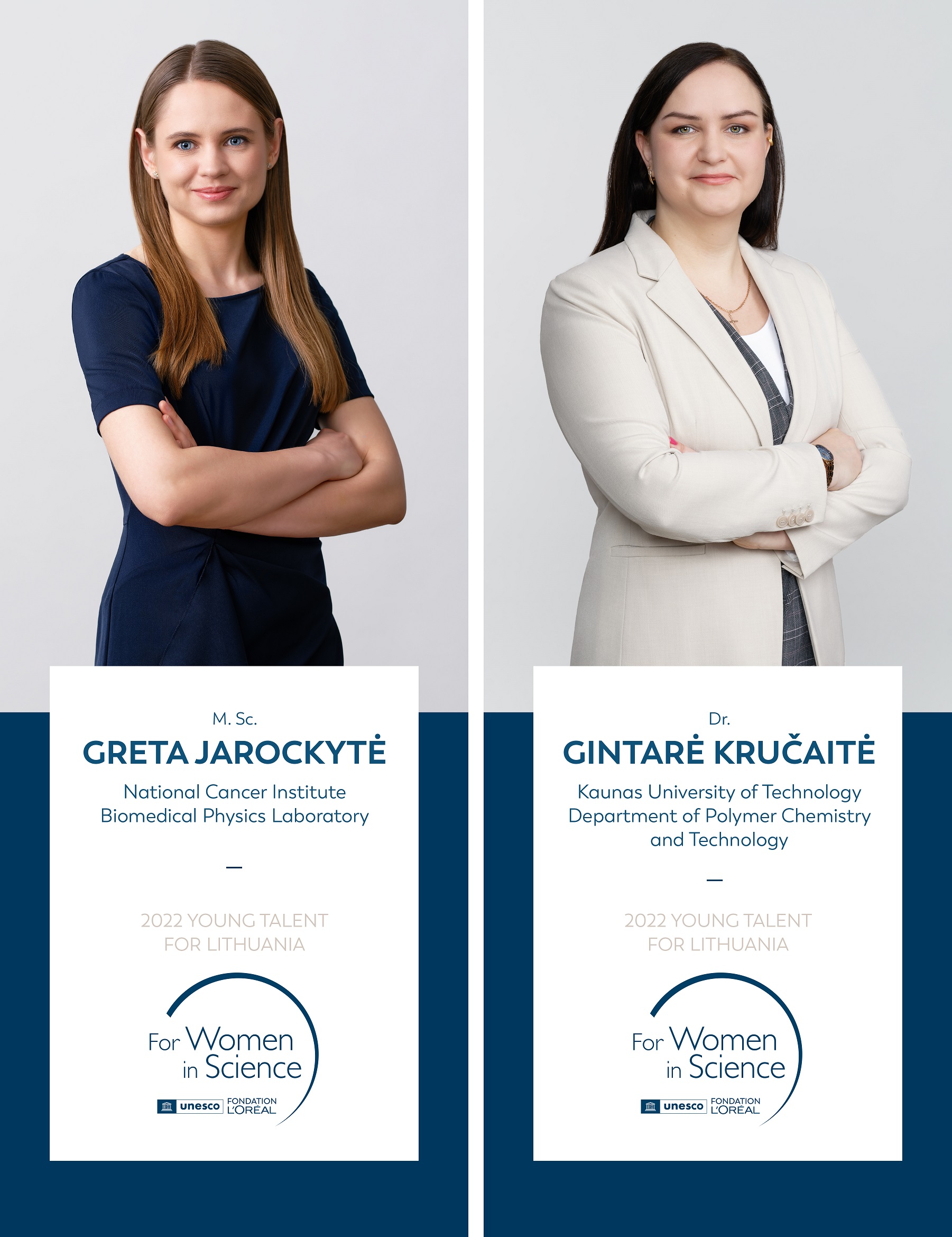Events
Lithuanian Women Scientists Honoured with Prestigious ‘For Women in Science’ Awards
20 06 2022
On 3 June, the winners of the International Rising Talent Awards of the L'Oréal-UNESCO programme ‘For Women in Science’ were announced. Dr Ieva Plikusienė, an associate professor at Vilnius University and a member of the Young Academy of the Lithuanian Academy of Sciences, was among the world's most promising women scientists honoured with this award.
These awards are part of the annual L'Oréal-UNESCO ‘For Women in Science’ programme, which recognises the contribution of women researchers to science. The week of award events for 2022 starts on 20 June. The winners will take part in a leadership training programme, which is part of the awards. The International Rising Talent Awards ceremony will take place at UNESCO Headquarters in Paris on 22 June.
Dr Ieva Plikusienė received this prestigious award for her research on SARS-CoV-2 protein-specific antibody interactions using next-generation optical-acoustic sensors. These sensors and mathematical models provide valuable information on antibody-antigen interactions, real-time formation and stability of the protein-antibody complex, and the spatial distribution of proteins. This can be used not only for the development of immunosensors in the laboratory, but also for the selection of the most suitable antibodies and antigens for rapid tests and for the selection of the most suitable proteins and antibodies for drugs or vaccines against COVID-19. In addition, such sensors can be used to detect and test for other biologically active substances, such as cancer markers and others.

Assoc. Prof. Dr Ieva Plikusienė
On 8 June, seven prominent Baltic women scientists were announced as winners of the L'Oréal-UNESCO Baltic Young Talent Programme ‘For Women in Science’. This year, in Lithuania, the winners’ laurels and €6000 prizes went to Dr Gintarė Kručaitė and the doctoral student Greta Jarockytė.
Gintarė Kručaitė is conducting research on new organic electroactive materials for energy-saving organic light-emitting diode (OLED) technology. Despite recent advances, OLED devices are not sufficiently efficient, because the injection and transport of charges in the devices is hampered by the varying height of the barriers and the low mobility of charges. In order to improve the efficiency of the devices, the synthesis, purification, and characterisation of new electroactive materials is a major challenge for researchers. To discover the most effective materials and design the most efficient device prototypes, materials research, along with the formation, characterisation, and optimisation of OLED devices are conducted.
MS Greta Jarockytė and Dr Gintarė Kručaitė
Greta Jarockytė, a doctoral student, focuses her research on the application of theranostic nanoparticles in the diagnosis and therapy of oncological diseases. Nanotechnology is one of the most promising areas in modern science for the development of new personalised diagnostic and therapeutic methods. In recent years, considerable effort has been devoted to the study into the materials that could be used in combination for the diagnosis and treatment of cancer. Such theranostic platforms offer a number of advantages, including more accurate diagnosis, specific drug delivery to the tumour, and less adverse effects on healthy tissues. The main objective of this study is to develop a next-generation multifunctional nanomaterial and to demonstrate its suitability for in vitro cancer diagnosis and treatment.
In agreement with SIA L'ORÉAL BALTIC and the Lithuanian National Commission for UNESCO, the Lithuanian Academy of Sciences collaborates on the ‘For Women in Science’ Young Talents Baltics Programme in Lithuania by forming a jury for the evaluation of applications, which also recommends candidates for the International Rising Talent Awards.
Translated by Diana Barnard
Photos by Tomas Kauneckas
